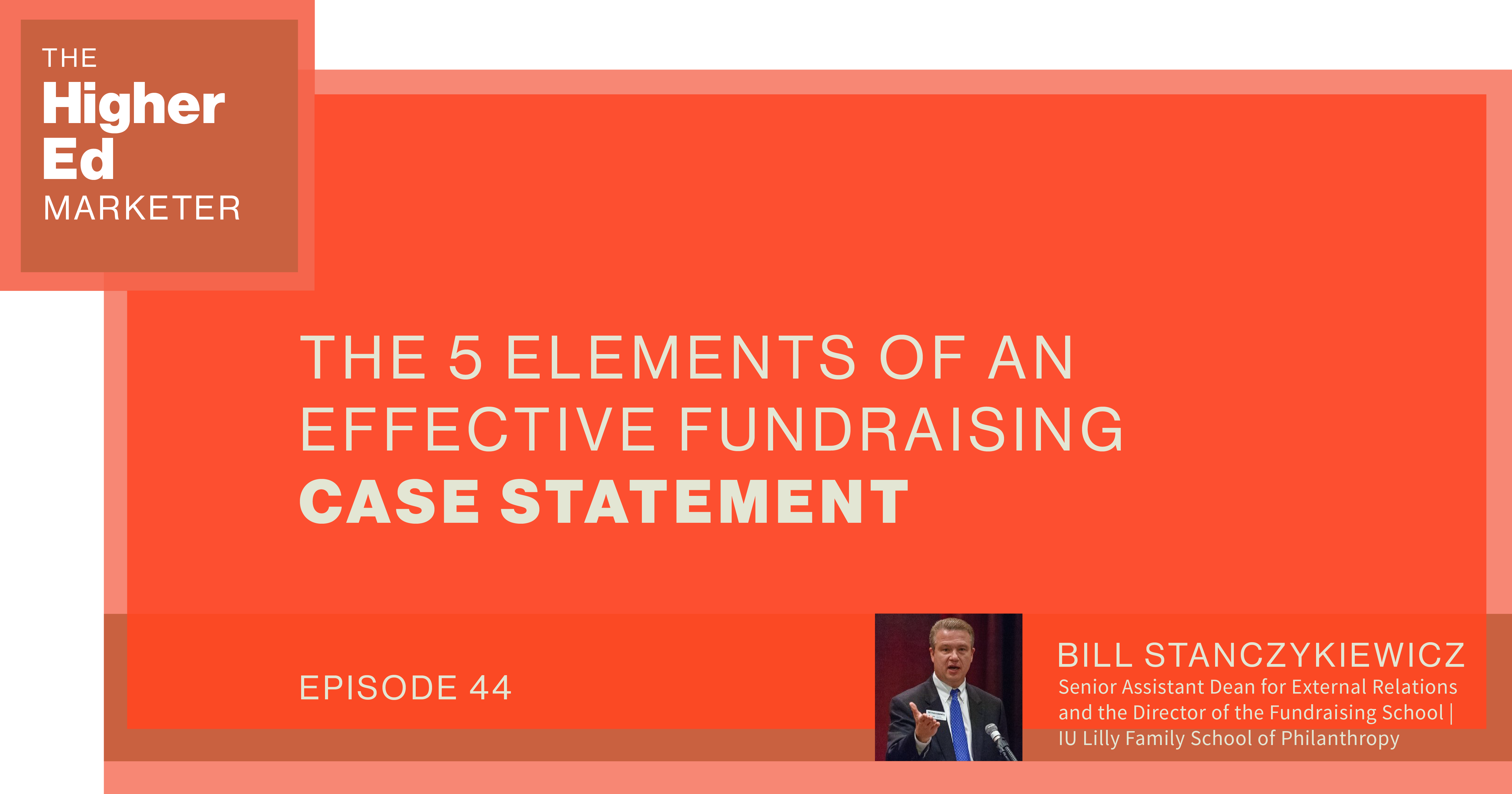
Click here to view the episode
Believe it or not, this is a key time for philanthropy in the higher ed segment whether you need funding for programs, projects, or professorial research. In fact, 2020 was a record year for charitable giving, according to Bill Stanczklewicz, the Senior Assistant Dean for External Relations, and the Director of the Fundraising School at IU Lilly Family School of Philanthropy, which is the world’s only school on philanthropic studies. Bill continues with encouraging words that “you shouldn’t fear fundraising during challenging times like we are experiencing”.
During the podcast presented by Bill, and supported by Bart Caylor of Caylor Solutions, an Educational and Branding Agency, and Troy Singer of Think Patented, a Marketing Execution, Printing and Mailing provider of Higher Education Solutions, the focus was on the importance of creating an effective fundraising case for support. Donors are looking for big ideas that can be supported by significant anticipated results. You need to clearly identify the problem you are going to solve or the opportunity you are trying to fulfill. Your fundraising case for support should be a narrative or story where you identify how the donor will perceive him or herself as part of the story and of course, the solution.
As part of your fundraising case for support, make sure that you include donor segmentation, which is key. Which donor segments do you rank as top priority and which segments are of lesser importance? The next step is to identify what media they use so that you can speak to them as they wish to be contacted. When you create the fundraising case for support, you are also establishing the talking points for the campaign.
Philanthropy is a message of hope. Donors think they can make the world a better place. You can define and offer an opportunity for them to do so. Set yourself apart by clearly stating your fundraising case for support. Remember to include:
1. Your big, compelling idea.
2. Define how your idea aligns with your organization’s strategic plan and resources.
3. Identify what problem you are trying to solve or what opportunity you are trying to resolve.
4. Explain your solution and identify what programs or services you will apply.
5. Define the outcomes for the potential donors. Remember that donors want to see outcomes and big donors want to see BIG OUTCOMES.
6. Describe how will you measure the results of the campaign.
7. Establish an emotional relationship between your fundraising cause and the. Why should the donor care about your request?
To listen to the entire podcast or other Higher Ed topics, go to higheredmarketerpodcast.com.
To learn more about Higher Ed Philanthropy or for assistance in developing your fundraising case for support, contact Troy Singer at 937.353.2830, or your Think Patented account executive, or call 937.353.2299.